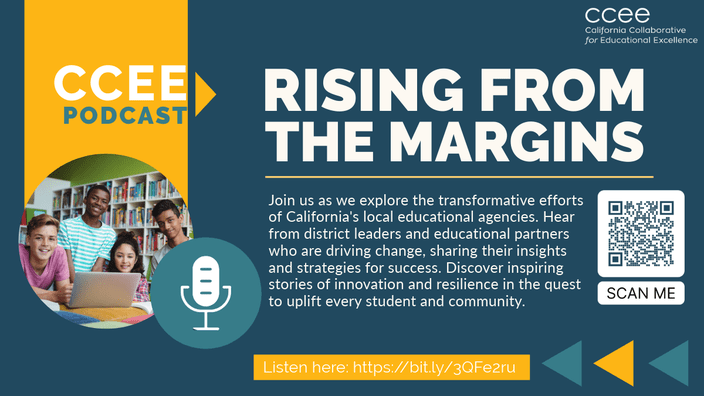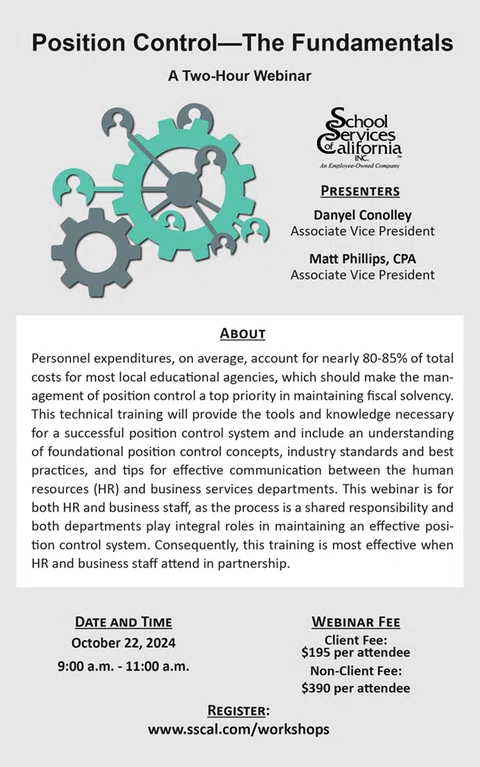Leading and coaching teachers for success
September 16, 2024
The following article was written by Matthew Horvath, assistant superintendent, Personnel Services, at Beverly Hills Unified School District.
In the dynamic landscape of education, the role of teachers is paramount. They are not only imparting knowledge but shaping the future of our society. However, the journey of a teacher is not solitary; it requires support, guidance and continuous development. In this article, we delve into the transformative approach of leading and coaching teachers within the Beverly Hills Unified School District, exploring how we are shifting toward a new teacher evaluation model and emphasizing the importance of gathering evidence to support our educators through coaching and feedback.
A new paradigm
The BHUSD has embarked on a journey toward enhancing teacher development and fostering a culture of continuous improvement. Central to this endeavor is the adoption of Charlotte Danielson’s latest 2022 Model of Teacher Evaluation. Danielson’s framework provides a common language for assessing instructional practices, focusing on the domains of planning and preparation, classroom environment, instruction, and professional responsibilities.
Why Charlotte Danielson’s Model of Teacher Evaluation?
Danielson’s model offers a comprehensive and research-based approach to evaluating teaching effectiveness. It goes beyond simplistic metrics and embraces the complexity of teaching by examining various facets of instructional practice. By aligning with this model, we aim to establish a shared understanding of what constitutes good instruction and learning within our district.
Collaboration and calibration: Key pillars of implementation
Implementing a new evaluation model requires more than just adopting a framework; it necessitates a cultural shift toward collaboration and calibration. At BHUSD, we recognize the importance of working together to ensure consistency and fairness in our evaluation processes. Through collaborative efforts, we engage in dialogue, share best practices, and refine our understanding of the Danielson framework.
Calibration sessions play a crucial role in this process, providing opportunities for evaluators to come together and calibrate their judgments. By engaging in discussions, analyzing evidence, and aligning our interpretations, we strive to enhance the reliability and validity of our evaluations. Calibration fosters a sense of collective responsibility and ensures that our assessments are grounded in a shared understanding of effective teaching practices.
Gathering evidence: Supporting Teachers with feedback
At the heart of our approach lies the belief that effective teacher evaluation is not just about appraisal but a tool focused on support and development. We recognize that gathering evidence is essential for providing meaningful feedback and guiding teachers toward growth.
Evidence collection is a collaborative process, involving multiple sources of data such as classroom observations, student work samples, and teacher reflections. By triangulating evidence from various sources, we gain a holistic understanding of teachers’ strengths and areas for growth.
Coaching emerges as a powerful tool for supporting teacher development within this framework. Rather than focusing solely on deficiencies, coaching emphasizes strengths and opportunities for improvement. Through targeted interventions and ongoing dialogue, coaches work alongside teachers to set goals, implement strategies, and reflect on their practice.
Feedback is a cornerstone of the coaching process, providing timely and specific information to teachers about their performance. Constructive feedback fosters a culture of continuous learning, empowering teachers to refine their practice and achieve their professional goals.
In the Beverly Hills Unified School District, we are committed to empowering educators through effective leadership and coaching. By embracing Charlotte Danielson’s Model of Teacher Evaluation and emphasizing the gathering of evidence to support our teachers, we are cultivating a culture of excellence and continuous improvement. Through collaboration, calibration, and meaningful feedback, we are shaping a brighter future for our students and our community.
References:
Danielson, C. (2007). Enhancing professional practice: A framework for teaching. Alexandria, VA: ASCD.
Danielson, C. (2013). Talk about teaching! Leading professional conversations. Thousand Oaks, CA: Corwin.






